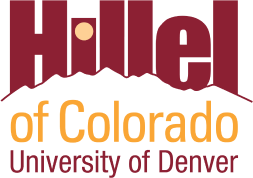This article originally appeared in the August 10, 2018 issue of the Intermountain Jewish News (pages 10 and 19)
By CHRIS LEPPEK
IJN Assistant Editor
 Colorado’s largest Jewish student organization, the Hillel house at the University of Colorado at Boulder, has been declared an independent entity, according to a joint statement issued July 18 by Hillel International and Hillel of Colorado.
Colorado’s largest Jewish student organization, the Hillel house at the University of Colorado at Boulder, has been declared an independent entity, according to a joint statement issued July 18 by Hillel International and Hillel of Colorado.The reorganization, termed a “spinoff,” essentially places the Boulder Hillel under the direct control of Hillel International instead of Hillel of Colorado, the regional Hillel umbrella that has traditionally supported and directed the CU chapter.
The statement noted that JEWISHcolorado will serve as the “fiscal sponsor” for the Boulder Hillel until it can become financially independent, while Hillel International, Hillel of Colorado and an anonymous donor will provide additional financial support for the chapter in its first two years.
Seth Reder, most recently associate director of leadership programs for Hillel International’s Hillel U program, will serve as executive director for Boulder Hillel. He is currently studying for his PhD at the University of Northern Colorado.
Daniel Bennett, executive director of Hillel of Colorado, will continue serving in that capacity, responsible for leading the Hillel houses at DU in Denver and CSU in Fort Collins.
“Through this exciting collaboration, Hillel of Colorado and CU Boulder Hillel are now positioned to facilitate a bright future in serving Colorado’s more than 4,000 Jewish college students,” Hillel of Colorado board chair Ed Barad said in the joint statement, which noted that 2,500 of those students are at CU.
“We are looking forward to both Hillels continuing the momentum that has led to many successes, with sound finances, extraordinary leadership and student engagement.”
Hillel’s organizational shuffle is not occurring in a vacuum, Bennett told the Intermountain Jewish News last week, and it has been a long time coming. He characterized the current realignment as an effort to correct the “malaise” — a combination of “money, programs and reputation” — that has adversely affected Boulder Hillel for some 20 years.
Similar efforts date back to the late 1990s, when JEWISHcolorado (then named the Allied Jewish Federation) and individual philanthropists worked to “reboot” Hillel of Colorado by installing a new board, purchasing the Boulder Hillel house, constructing the Merage & Allon Hillel Center at DU and making a serious effort to enhance fundraising for the organization, Bennett said.
The impact of those revitalization efforts was significantly lessened by the recession that struck in 2008, negatively impacting many national Jewish nonprofits and philanthropists.
Plans to rebuild the Boulder Hillel house “evaporated overnight,” Bennett says, and “fundraising went down, down, down and, of course, so did programming as money got scarce.”
By the time Bennett became Hillel’s statewide director in 2016, “it needed a reboot again,” he says, “which is what we’ve been doing in the last two years. Money was low, programming wasn’t good . . . student engagement by any metrics was bad.”
The most serious issue, he adds, was moribund fundraising, exacerbated by the fact that no serious efforts had been made to solicit the financial support of Boulder Hillel alumni. “There’s usually a three-way partnership for funding,” Bennett said. “One is the community, the other is federations and other major foundations, and the third is alumni.
And this organization has never gotten around to building alumni fundraising. In the future that has to be something that we do, and we know that.
“So the organization had no money and needed new people running the campuses, needed new programs and needed metrics to run them,and most of all, needed a new board.”
Since 2016, he adds, Hillel of Colorado has accomplished most of those goals. Among several objectives the organization included in its most recent reorganization plan, he adds, was spinning off the Boulder Hillel,something they expected to do a few years down the road.
“It happened more quickly because of outside pressures from federation and Hillel International which were working together to promote [the idea] that Boulder should be the flagship of the Colorado Hillel system,” Bennett said.
“There are as many Jewish students at Boulder as the other schools combined but Boulder wasn’t a flagship Hillel. It was a low-populated Hillel.
“So this plan, which is critical, just happened more quickly than we wanted. We were not only in favor of it, we were pushing for it. We now believe that we can capitalize on that and make it work for everybody.”
With the proper planning and effort, Bennett says, there is no reason that a campus like CU Boulder, with some 2,500 Jewish students, can’t have a standout Hillel house.
“If Hillel of Colorado and the new CU Hillel Boulder don’t both survive and thrive, neither one of them is doing its job,” he said. “Success is if both organizations succeed.”
Overall, Bennett echoes the sunny and optimistic tone projected in last month’s joint statement.
There remains, however, much work to do, not only in Boulder but at DU and CSU, whose Hillel operations remain under his direction.
“I’m very optimistic,” he said, “but it will take a little while before we can build out to where we need to be, because we’re funding [Boulder] for a couple of years to a significant amount.That’s going to cost us. But we don’t mind doing that because we want them to thrive.
“Our board is looking at the next pieces of the strategic plan. That includes getting more dollars into programming for the students. The traditional programs that we run are going to be fine, the stuff you think of as Hillel, the Shabbos and holiday dinners, social justice programs, Israel trips, keeping the home as a place for the kids to safely hang.
“But what we want to increase is our leadership development, getting students what they need to become members of the Jewish community — internships, mentorships, training for adulthood.”
Bennett envisions the CSU Hillel in Ft. Collins as the nucleus for Jewish college students in northern Colorado, as well as those from the University of Wyoming in Laramie, while DU should be the nucleus of Jewish student life for such Denver-area campuses as Auraria, the Colorado School of Mines, Arapahoe, Regis, Red Rocks, and more.
“There are, among those Denverarea campuses, probably over a thousand Jewish students,” he said.“We’re not doing as much as we can there; that’s in the future also.
“Where I really want to grow this thing is connecting these students with what’s next for them and that’s employment opportunities, Jewish community connections. We’ve got to equip these students with what they need to get those Jewish values out into the Jewish community.”
He expresses similar hopefulness for the newly independent Boulder Hillel, which includes the challenge of its physical headquarters which for decades has been located in an aging facility on Colorado Ave.
One of Bennett’s first tasks as statewide Hillel director was to sell the Boulder facility and find a new home for the Hillel house.
“I inherited that plan to sell it and move it to the Hill [a central Boulder neighborhood].
“Everybody thought that was a good idea.The federation,which owns the land up there, thought that it was a good idea.”
The Hill — where Rabbi Yisroel Wilhelm’s CU Chabad is located in a sizeable new facility and is attracting significant student participation — no longer strikes Bennett as a viable option for Hillel.
He notes that Boulder’s real estate market is extremely expensive, the fact that properties on the Hill usually have inadequate parking and the expressed wish of many Hillel students not to relocate.
Bennett suggests that a better idea would be to keep the land on Colorado Ave. and “to scrape and totally rebuild,” and perhaps to build new structures, including student housing, on what is a substantial parcel of land.
“It won’t be my call anymore,”Bennett acknowledges.“It will be the call of this new organization once it builds a new board. We’ve handed them all our research.”
Amidst the tumult of reorganization and the challenges that both Hillel International and Hillel of Colorado are facing in making Boulder Hillel viable, Bennett remains steadfast in stressing the importance of the campus Jewish student organization
“We are one of the key organizations that shepherds Jewish people from the world of childhood to the world of adulthood,” he says.
He emphasizes that the importance of such youth-oriented programs as day schools,summer camps and Israel trips cannot be understated,“ but unless young people are stewarded during these five, six years of their lives, unless they have good programs, unless they have the support to figure out Judaism the way they want to figure it out, the odds of them being part of a normative Jewish community are slim and greatly reduced.
“If we do it well, then we’ve got a chance at a really thriving Jewish community in the future.”
Chris Leppek may be reached at IJNEWS@aol.com.


